[Introduction]
I traveled to Nikko (日光) for three days and two nights in the middle of February for the first time in five years. Visiting Nikko in winter would be a good choice, since there are less tourists compared to other seasons (summer and autumn) and visitors are able to enjoy snow scenery. In this article, I will write about Nikko Toshogu Shrine as part of Day 2.
[Visit Places (series of articles)]
* Day 1: Nikko Station
* Day 1: SL Taiju
* Day 1: Kegon Falls and Lake Chuzenji
* Day 1-2: Nikko Station (Light-up) and Nikko Station Hotel Classic
* Day 2: Shinkyo Bridge and Nikkosan Rinno-Ji Temple
* Day 2: Nikko Toshogu Shrine [This article]
* Day 2: Futarasan-Jinja Shrine, Taiyuin Nikkosan Rinno-Ji Temple and Tamozawa Imperial Villa Memorial Park
* Day 2-3: Nikko Kanaya Hotel
* Day 3: Kosugi Hoan Museum of Art and Matsuyashiki
[Travel Date]
2018.02.18-20
[Main Part]
Nikko Toshogu Shrine
Following the previous post, I moved to Nikko Toshogu Shrine after lunch at “Meiji-No-Yakata”.
Nikko Toshogu is a Shinto shrine established in 1617 to enshrine Tokugawa Ieyasu, the first shogun of the Tokugawa shogunate. Nikko Toshogu Shrine is the most famous spot in the World Heritage “Shrines and Temples of Nikko” area and “Yomeimon Gate” has been open to the public since last year (2017) after its renovation, so Nikko Toshogu has got more attention recently.
I started walking around Nikko Toshogu from “Sando” (approach to the shrine).
Ishidorii (Stone Torii Gate).
Gojunoto (Five-Story Pagoda).
Central pillar has been specially opened, so I decided to watch it.
I walked around the Five-Story Pagoda.
The zodiac animals were decorated.
I moved further after leaving the Five-Story Pagoda.
Sanjinko (Three Sacred Storehouses).
Shinkyusha, which is a stable for the shrine’s sacred horses.
The “See No Evil, Speak No Evil, Hear No Evil” carving of three monkeys is particularly famous.
I moved further.
Then, “Yomeimon Gate” came into sight.
“Yomeimon Gate” is covered with over 500 carvings depicting traditional anecdotes, children playing, sages and wise men.
Since “Yomeimon Gate” has been newly renovated, many visitors took pictures here.
It was really gorgeous.
In the gate.
Opposite side.
I climbed up 207 steps and moved to Okumiya (Inner Shrine).
There was a grave of Tokugawa Ieyasu at Okumiya (Inner Shrine).
I will go back the way I came. Here are some snap photos.
I returned around the approach to the shrine and then stopped by “Nikko Toshogu Museum”.
Then, I left Nikko Toshogu Shrine and moved to the next destination, Futarasan-Jinja Shrine.
[Closing]
That’s it for the article about Nikko Toshogu Shrine as part of Day 2 of my Nikko trip.
There were 55 shrine pavilions (5 of them are designated as National Treasures of Japan and 34 as Important Cultural Properties) in Nikko Toshogu Shrine, and they were gorgeous. In particular, the golden Yomeimon Gate is a must-see spot 🙂
In the next article, I will write about Futarasan-Jinja Shrine, Taiyuin Nikkosan Rinno-Ji Temple and Tamozawa Imperial Villa Memorial Park as part of Day 2.
[Map]
1 Ishidorii (Stone Torii Gate)
2 Gojunoto (Five-Story Pagoda)
3 Sanjinko (Three Sacred Storehouses)
4 Shinkyusha (Sacred Stable)
5 Yomeimon Gate
6 Okumiya (Inner Shrine)
7 Nikko Toshogu Museum
[Related Link]
Nikko Kinugawa Travel Guide
World Heritage “Shrines and Temples of Nikko” (Nikko City Government Office)
Nikko Toshogu Shrine
I would appreciate it if you could share my article via the following SNS buttons.

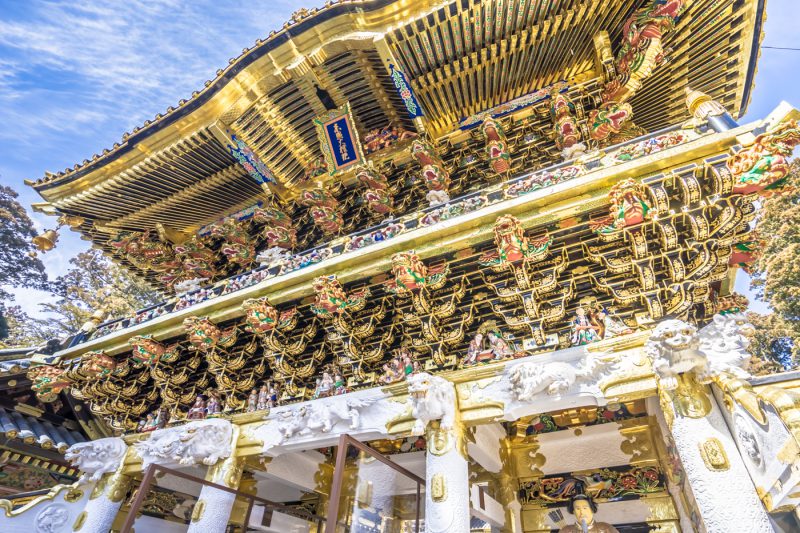
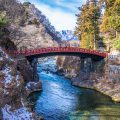
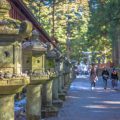
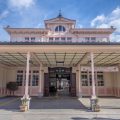
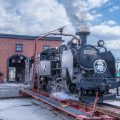
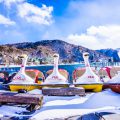
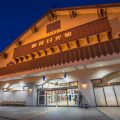
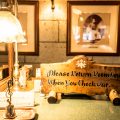
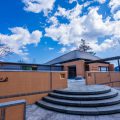
日光東照宮
日光東照宮さん、コメントありがとうございます。はい、日光東照宮です!